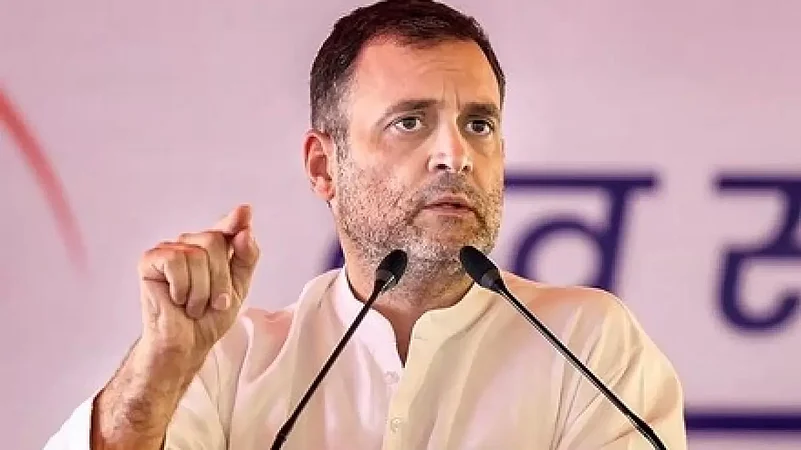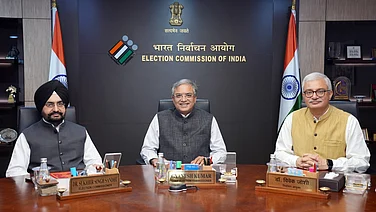Amidst the war of words between the Congress and BJP over Congress leader Rahul Gandhi's disqualification from Lok Sabha, Germany has 'taken note' of the issue, triggering a fresh political slugfest on Thursday with the ruling party accusing the opposition party of "inviting foreign powers" to interfere in internal matters.
The BJP attack came after senior Congress leader Digvijaya Singh thanked the German foreign ministry and Richard Walker, Chief International Editor of Deutsche Welle, for "taking note of how Democracy is being compromised in India through the persecution of Rahul Gandhi".
What did the German Foreign Ministry say?
He shared a tweet by Walker in which the senior journalist had posted a video of a German foreign ministry spokesperson reacting to Gandhi's disqualification. At a press briefing, Germany's foreign ministry spokesperson said, "We have taken note of the verdict of first instance against Indian opposition politician Rahul Gandhi as well as the suspension of his parliamentary mandate."
"To our knowledge, Mr Gandhi is in a position to appeal the verdict. It will then become clear whether this verdict will stand and whether the suspension of his mandate has any basis," the spokesperson was quoted as saying. Germany expects that "standards of judicial independence and fundamental democratic principles" will equally apply to the proceedings against Rahul Gandhi, the spokesperson added.
'Inviting foreign interference'
Several BJP leaders slammed the party, accusing them of "inviting foreign interference" in internal affairs. Sharing a screenshot of Digivijaya Singh's tweet, Union Law Minister Kiren Rijiju said, "Thank you Rahul Gandhi for inviting foreign powers for interference into India's internal matters." "Remember, Indian Judiciary can't be influenced by foreign interference. India won't tolerate 'foreign influence' anymore because our Prime Minister is:- Shri @narendramodi Ji," Rijiju said.
Hitting back at Rijiju, Congress' media department head Pawan Khera said, "Mr. Rijiju, why divert from the main issue? The issue is that the Prime Minister cannot answer Rahul Gandhi's questions about Adani." Instead of "misleading" people, please answer the questions, Khera said.
Information and Broadcasting minister Anurag Thakur too launched an attack saying, "Disgrace to nation, @INCIndia & @RahulGandhi don't believe to fight India's democratic, political and legal battle within country, hence, invite foreign powers to interfere in our internal matter. But New India headed by @narendramodi Ji will not tolerate any foreign intervention."
Finance Minister Niramala Sitharaman also slammed the Congress over Singh's tweet. "Apparent that @INCIndia wants foreign interference in our affairs. Sign Memorandum of Understanding (MoU) with Communist Party of China with opaque contents. During interactions abroad, plead for help to change government. Thank them when help forthcoming. Any more proof needed?" she said.
BJP's IT department head Amit Malviya also tagged Singh's tweet and said, "Shameful that Congress continues to lean on foreign agencies and seek their intervention in India's internal affairs." "Rahul Gandhi had recently sought Europe and US intervention and now it is Digvijay Singh. But Law is the Law… Unless somebody thinks Law is not the Law for them," he said.
Gandhi was disqualified from Lok Sabha on March 23 after a court in Gujarat's Surat convicted him in a 2019 defamation case over his 'Modi surname' remark. Earlier this week, a US state department official had said the United States is watching the court case of Rahul Gandhi. The official observed that the US continues to engage with India on the shared commitment towards democratic principles and the protection of human rights, including freedom of expression.
(With inputs from PTI)


























